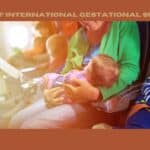
Yes, you read that correctly. The anything goes scientists in the U.K. are upset about a new California company, StemLifeLine. From the StemLifeLine homepage the company says this:
StemLifeLine is a life sciences company offering a novel service for individuals who have undergone in vitro fertilization, fulfilled their childbearing needs and now have to decide what to do with their remaining stored embryos. We can help transform these embryos into individual stem cell lines that our clients may one day use to create therapies for themselves and their families.
Think of our service as investment for the future. With more than a decade of scientific research supporting the future use of embryonic stem cells and several therapies currently under development, therapies using embryonic stem cell lines may be available in the future.
What has the U.K. scientists so upset? First, it is a money making scheme which preys on the fears of parents. You better save those cells in case some day you need them to cure your sick children. And second, there are still NO, nada, zip, cures from embryo stem cells, so it is just another money making scheme. We have no market for embryonic stem cells so why the need for storage facilities?
Author Profile

- Jennifer Lahl, MA, BSN, RN, is founder and president of The Center for Bioethics and Culture Network. Lahl couples her 25 years of experience as a pediatric critical care nurse, a hospital administrator, and a senior-level nursing manager with a deep passion to speak for those who have no voice. Lahl’s writings have appeared in various publications including Cambridge University Press, the San Francisco Chronicle, the Dallas Morning News, and the American Journal of Bioethics. As a field expert, she is routinely interviewed on radio and television including ABC, CBS, PBS, and NPR. She is also called upon to speak alongside lawmakers and members of the scientific community, even being invited to speak to members of the European Parliament in Brussels to address issues of egg trafficking; she has three times addressed the United Nations during the Commission on the Status of Women on egg and womb trafficking.
Latest entries
 infertilityApril 23, 2024The Rise of International Gestational Surrogacy in the U.S.
infertilityApril 23, 2024The Rise of International Gestational Surrogacy in the U.S. Assisted Reproductive TechnologyApril 16, 2024Founder Jennifer Lahl’s Speech on Surrogacy to the Casablanca Declaration
Assisted Reproductive TechnologyApril 16, 2024Founder Jennifer Lahl’s Speech on Surrogacy to the Casablanca Declaration #BigFertilityFebruary 27, 2024No, Alabama Didn’t Ban IVF
#BigFertilityFebruary 27, 2024No, Alabama Didn’t Ban IVF ArticleSeptember 25, 2023The Little Engine That Could
ArticleSeptember 25, 2023The Little Engine That Could

